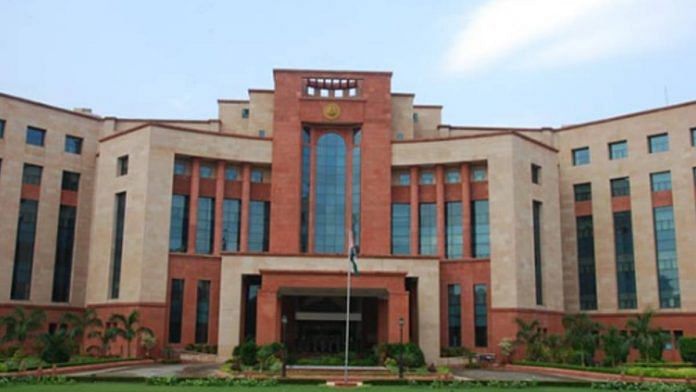New Delhi: The Indian defence forces had to either import critical military technologies or do without them due to delays of up to 569 weeks by the Defence Research and Development Organisation (DRDO) in submitting project proposals, showed a report by the Comptroller and Auditor General (CAG).
The DRDO is tasked with developing technologies and weapon systems to help improve military preparedness.
“Of the 75 ongoing projects, Audit analysed 40 ongoing projects… Audit noted that in 31 projects, there were abnormal delays in initiation of the project proposals as well as sanctioning of the projects,” said the report titled ‘Management and Outcome of Mission Mode projects in DRDO’, tabled in Parliament last week. ThePrint has accessed the report.
Mission Mode (MM) projects are high-priority projects based on specific user (referring to Army, Navy or Air Force) requirements with a definite time-frame for completion.
According to the report, as against the prescribed period of 16 weeks for formulation of an integrated project proposal, the DRDO took 17 to 569 weeks for submission of proposals in 29 projects, which had a cascading effect on sanctioning of the project.
Further, there were considerable delays ranging from 29 to 577 weeks in obtaining the sanction of the Secretary, Department of Defence (R&D), after submission of the receipt of user requisition.
The delays resulted in “changes in the technology to be used, import of the said items by users, and non-availability of the required item with the users,” the report said.
For example, Air Headquarters had to import 2,000 cartridges in July 2014, even though it had projected requirements to Armament Research & Development Establishment (ARDE) — the laboratory of the DRDO — for development of these cartridges six years earlier.
In July 2008, Air Headquarters had projected the requirement for development of Cartridge 0.5 inch (12 LL/195) to ARDE, as replacement for imported cartridges, with a delivery schedule of one year. However, the ARDE took five years in analysing the method of developing the indigenous cartridges and sanctioned the project in March 2014 at a cost of Rs 0.70 crore.
“The project was closed in July 2018 (expenditure: Rs 0.50 crore) and was termed successful. In the meantime, Air Headquarters imported 2,000 cartridges in July 2014,” the report noted.
The CAG audit also found that the DRDO had taken up new projects for developing certain products/technology which were already under production by the Ordnance Factory Board (OFB), which comes under the Ministry of Defence.
The CAG has recommended the DRDO should formulate its Annual Plan related to MM projects in consultation with the three services.
It has also suggested that the DRDO should ensure that delays in preparation of project proposals are avoided to mitigate the risk of technology/equipment becoming obsolete.
Also read: CAG slams DRDO for delays, declaring projects successful despite failure to meet key goals
The case of ‘secure mobile phones’
The CAG took note of instances where MM projects were taken up without the consent of the users.
For instance, a project on ‘Development of Performance Assessment of Secure Mobile Phones’ was sanctioned by Director, CAIR (Centre for Artificial Intelligence and Robotics — a laboratory of DRDO) in May 2012 at a cost of Rs 4.95 crore.
This project was taken up by the DRDO on the request of DG Signals (February 2012) even though no Preliminary Staff Qualitative Requirement/ General Staff Qualitative Requirement (PSQR/GSQR) was given to the DRDO, according to the report.
MM projects are referred to the DRDO by the Army, Navy or Air Force in the form of PSQR/GSQR, based on which feasibility studies are done. It is after the feasibility study that the service concerned finalises, modifies or drops the proposal.
In the case of developing secure mobile phones, in December 2012, CAIR placed a supply order to M/s BEL, Ghaziabad, for supply of 300 handsets of E6 Nokia smartphones. BEL procured 300 handsets at the cost of Rs 1.50 crore and supplied them to CAIR. The project was closed in March 2014 after incurring a cost of Rs 3.12 crore.
“CAIR closed the project terming it successful, without receipt of evaluation of the software and phones by users… The users returned all the 300 smartphones in April 2016,” the CAG report said. It noted that the software was developed for a specific series of E6 Nokia phones, the production of which was stopped by the phone manufacturer.
In March 2021, the Army intimated that the performance of the ‘secure mobile phones’ had not been found satisfactory in user trials and the project taken up by the Council of Scientific and Industrial Research (CSIR) had not been successful.
(Edited by Nida Fatima Siddiqui)
Also read: After Union govt, states obfuscating budgets. India needs true bond market more than CAG audits



